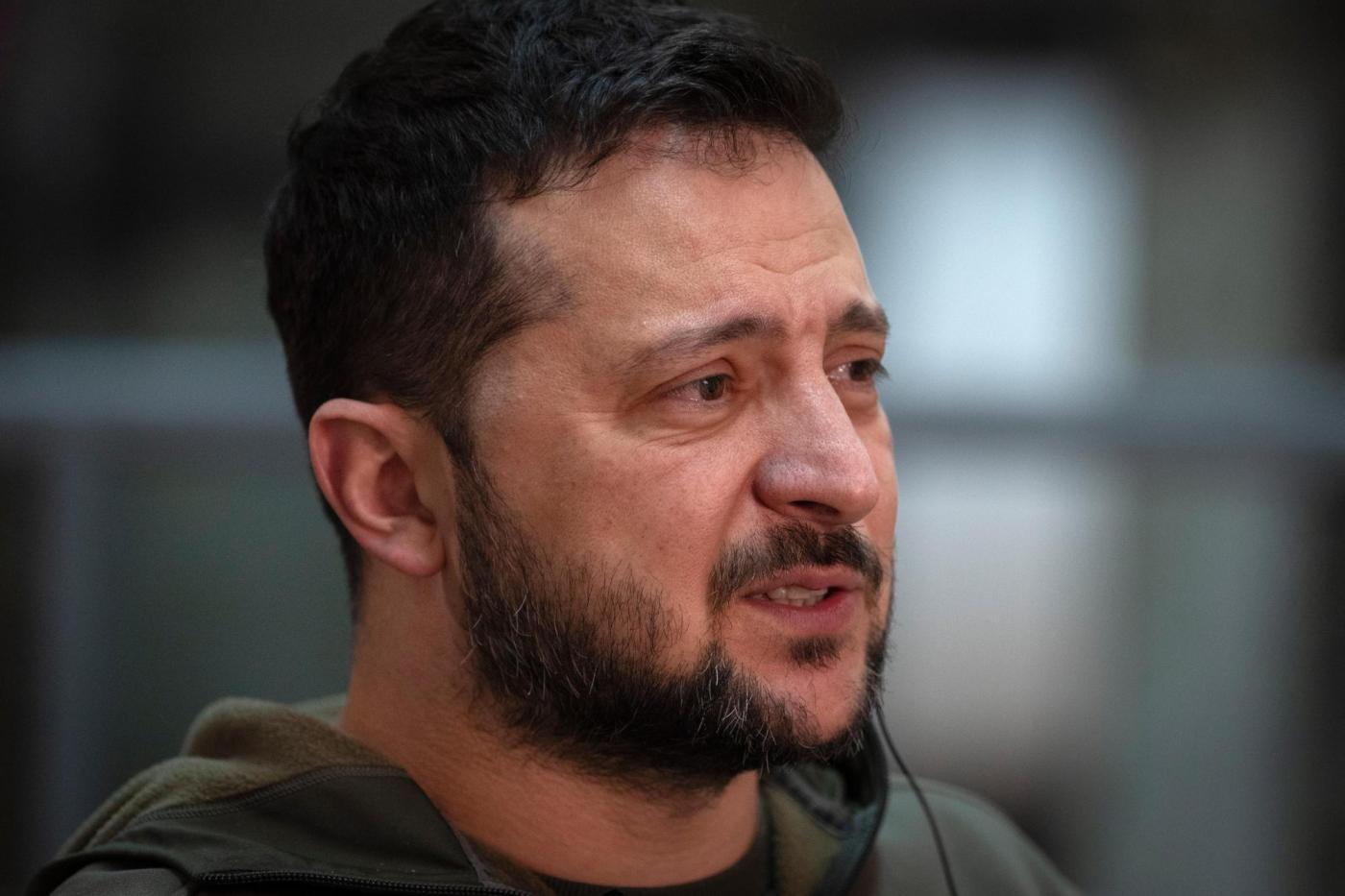
Andrew L. Stigler: Would Ronald Reagan abandon Ukraine to Russia?
As the fighting in Ukraine continues, some representatives in Congress, primarily Republicans, oppose additional financial and military support for Ukraine’s resistance to Russia’s ongoing invasion.
U.S. House Speaker Mike Johnson has said he has reservations about continued support for Ukraine because he believes that there is inadequate oversight on how the aid is spent and sees no strategy to win. Johnson also argued that America’s border problems should take priority, a preference shared by many on the right. Congress will take up the issue again this year, but the future of American aid to Ukraine is in serious doubt.
Four decades ago, a Republican president supported a different victim of Russian aggression, in a situation similar to the one that the United States faces today. When the Soviets invaded Afghanistan in 1979, President Jimmy Carter offered limited aid to the Afghani resistance. But it was a Republican who championed and dramatically expanded funding for the Afghan mujahedeen during most of the nine-year effort to compel a Soviet withdrawal from Afghanistan. That leader was the icon of the GOP, Ronald Reagan.
During Reagan’s first term, the prospects of wearing down the Soviet Union and convincing the Soviet leadership to quit Afghanistan did not look promising. J. Bruce Amstutz’s book “Afghanistan: The First Five Years of Soviet Occupation,” published in 1986 as the Soviet occupation continued with no end in sight, summarized the conventional wisdom of the early 1980s that Moscow could not be pressured to withdraw.
Amstutz, a Foreign Service officer who had been stationed in Kabul from 1977 to 1980, argued that Moscow had invested “Soviet prestige and resources” in the fight for control of Afghanistan and had no intention of departing. The Soviets were set on obtaining the “geopolitical power projection benefits from eventual consolidation of Soviet control.” Amstutz noted the “Soviet bureaucratic imperative of never admitting to mistakes,” as well as an “absence so far of much Soviet domestic opposition to the war.” Note that all of these caveats can be applied, word for word, to Putin’s current effort in Ukraine.
Yet, defying these causes for pessimism, Reagan continued and even increased his support for the Afghan resistance for many years. He recognized America’s unique role as a defender of freedom, even the freedom of an Asian nation far from the West.
After meeting with mujahedeen leaders in Washington in November 1987, Reagan spoke of the need for continued aid: “And as the resistance continues the fight, we and other responsible governments will stand by it. The support that the United States has been providing the resistance will be strengthened, rather than diminished, so that it can continue to fight effectively for freedom. The just struggle against foreign tyranny can count upon worldwide support, both political and material.”
Far from relenting after a couple of years, as many of today’s Republicans in Congress propose regarding Ukraine, Reagan increased American support in 1987. And Reagan’s determination paid off. The Soviets withdrew from Afghanistan in 1989, a historic superpower defeat that contributed to the end of the Cold War and the dissolution of the Soviet Union in 1991. Afghan and American perseverance culminated in a tremendous setback for the Soviets’ regional ambitions.
American aid to Ukraine since February 2022 greatly exceeds what the United States provided to the Afghans in the 1980s. But the geostrategic stakes are much higher as well. In 1980, America merely aspired to take Afghanistan, an impoverished and strategically irrelevant nation, out of the Soviet sphere. Today, American aid to Ukraine is helping prevent a huge Eastern European country of more than 40 million from becoming the first European nation to be conquered since World War II.
The recent Ukrainian counteroffensive did not lead to sweeping advances, and it was unrealistic to assume it would. But Ukrainians are imposing a tremendous cost on the Russian aggressor. Russia has lost a catastrophic number of soldiers — 315,000 have been killed or wounded, according to a recent estimate, which is higher than the number of Russian soldiers killed and missing (which excludes the wounded) from all of Russia’s post-World War II conflicts combined, including the Soviet invasion of Afghanistan. Ukrainian resistance has been incredible, purchased at great cost. It will take time for these costs to have an impact, and Kyiv’s allies need to buy Ukrainians that additional time.
Republicans in Congress often play an eager role in funding America’s defense, and Congress as a whole spends hundreds of billions each year to prepare for notional wars in the near and distant future. It is puzzling, then, to see so many members wavering in their support for Ukraine. This is not a notional future war but a fight for the actual independence of a real neighbor of NATO fighting a real war against real aggression by a real dictator.
If he were alive today, would Reagan be bailing out on the Ukrainians?
Andrew L. Stigler is an associate professor in the National Security Affairs Department of the United States Naval War College. The views expressed are his own and not those of any government department or agency. He wrote this column for the Chicago Tribune.
Related Articles
Lisa Jarvis: A pioneering Oregon project could help the youth mental health crisis
Mary Ellen Klas: DeSantis is flaming out and blaming Trump
Noah Feldman: Israel court ruling won’t end Netanyahu’s ambition
Hannah Sward: My life after meth — learning to open and close the curtains
Lee, Olson: Books we read in 2023 to prepare us for the future

